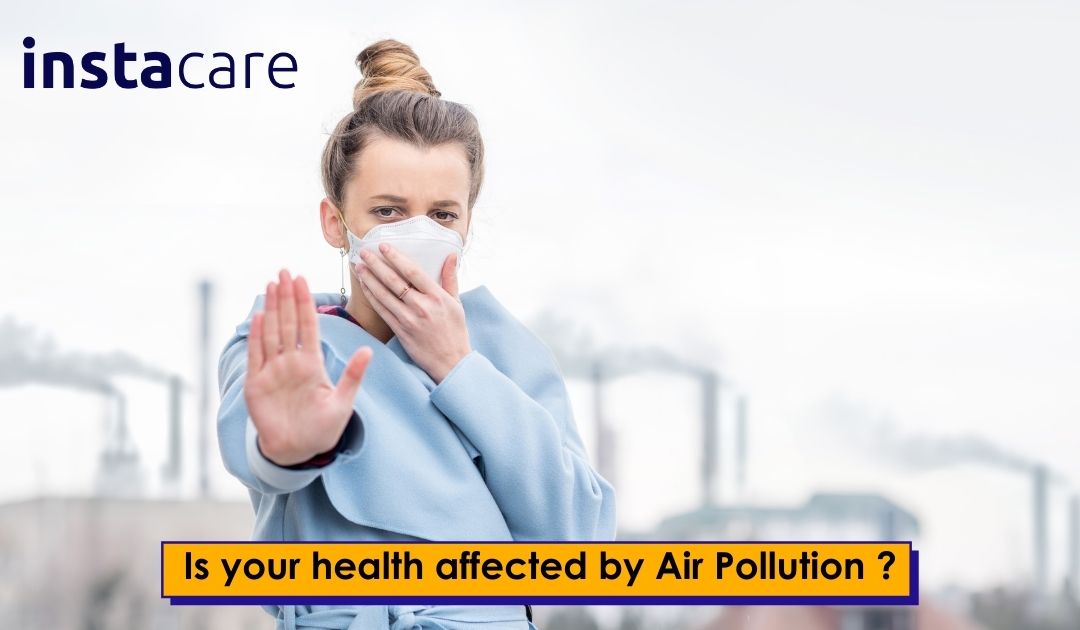The Presence of pollution in the air harms the health of humans and other living beings. Its primary source is cars, trucks, buses, agriculture equipment, and industrial smog.
How many air pollutants are there and what are their effects on your health?
There are 6 major air pollutants that cause major health effects:
- Ground-level ozone
- Nitrogen dioxide
- Sulfur dioxide
- Carbon monoxide
- Lead
- Microscopic particles (particulate matter)
Ground Level Ozone: It is also called smog but it is different from the fog it is a mixture of air pollution and also reduces visibility. Smog is formed when volatile organic compounds and oxides of nitrogen react with sunlight. VOCs and NOx primary sources are cars, trucks, buses, and agricultural equipment. Ground-level ozone mostly affects asthma patients, children, and people who especially outdoor workers. If you reduce the intake of nutrients such as vitamins C and E that you have a great risk of ozone exposure.
What Health Problem Can Smog (ozone) Causes?
- Through smog, you can face difficulty in breathing.
- You can face shortness of breath, and pain when taking a deep breath.
- Causes coughing.
- Damage the airways.
- Causes lung disease such as asthma, emphysema, chronic bronchitis.
- You can increase the frequency of asthma attacks.
- Cause Chronic Obstructive Pulmonary disease.
If you are suffering from these symptoms book an appointment through Instacare.
Nitrogen Dioxide: It is a group of gaseous air pollutants produced as a result of fossil fuel traffic.
What Health Problems Can NO2 Causes?
- Nitrogen dioxide irritates your airways and causes the respiratory system.
- Aggravate respiratory disease.
- Nitrogen dioxide causes asthma (People with asthma, as well as children, and the elderly are generally at greater risk for the health effects of NO2.
- Causes coughing, wheezing.
View More: What Causes White Hair At Early Age
Sulfur Dioxide: It is a toxic gas that directly harms human health. 95% of sulfur dioxide is emitted from the combustion of burning fossil fuels by power plants and other industrial facilities.
What Health Problem Can Sulfur Dioxide Causes?
- Sulfur Dioxide causes breathing problems.
- Causes pain in the chest.
- Irritation in the eye.
- Increase the risk of asthma attacks.
- Causes heart disease.
Carbon Monoxide: CO is a very harmful and colorless, odorless gas. The Source of causes CO is cars, trucks, burning fossil fuels. Carbon monoxide poisoning can cause death for those who survive, recovery is slow. Most people with mild exposure to carbon monoxide experience headaches, fatigue, and nausea.
What Health Problem Can Carbon Monoxide Causes?
- Carbon monoxide can cause memory problems.
- Causes a Vision problem.
- Effect hearing loss.
- Increase the Risk of Heart Attack.
Lead:
Lead in the air is ore and metals processing and piston-engine aircraft operating on leaded aviation fuel. Other sources are waste incinerators, utilities, and lead-acid battery manufacturers. The highest air concentrations of lead are usually found near lead smelters.
What Health Problem Can Lead Causes?
- Effect your nervous system.
- Effect your kidney.
- Affect your immune system
- Effect your reproductive and development system
- Effect your cardiovascular system.
- Lead exposure also affects oxygen caring in the blood.
- Infants and young children are especially sensitive to even low levels of lead, which may contribute to behavioral problems, learning deficits, and lowered IQ.
If you are suffering from these symptoms and you want the information of the best pulmonologist in Lahore call on the helpline number of Instacare.
Particulate Matter: PM is a mixture of solid and liquid particles. Some particles are dust, soot, smoke, the dirt they can not be seen with the eye they can only be detected using an electron microscope.
What Health Problem Can Lead Cause?
- Some particles less than 10 micrometres in diameter can get deep into your lungs and cause lung disease.
- Increased respiratory problems, such as irritation of the airways, coughing, or difficulty breathing.
- Causes Chronic Obstructive Pulmonary Disease.
If you want to prevent Air pollution and keep yourself and the environment healthy, wear a mask while going out, walk and use a bicycle for short distances do not burn fuel, cow dunk, eliminate fireplace, and wood stove usage, avoid burning leaves, trash, and other materials and increase tree plantation.
Conclusion: If you want to consult with the best Pulmonologist in Pakistan book an appointment through Instacare or you can call on the Helpline Number: 0310 0002273.




